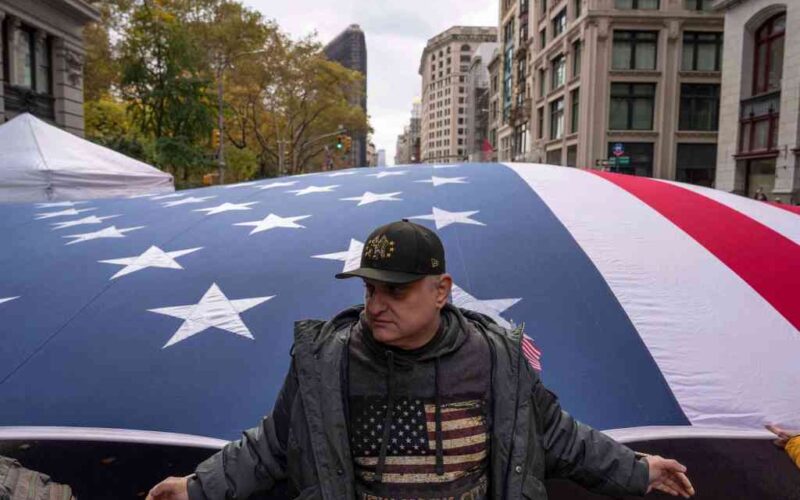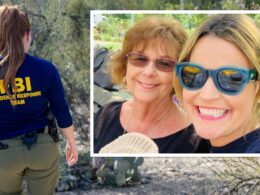According to recent U.S. government data and financial surveys, approximately 60% of Americans live either below the federal poverty line or paycheck to paycheck, leaving little margin for unexpected expenses.
To get by, many adopt emergency-level budgets. But even the harshest austerity measures may not be enough. Mortgages and rent must be paid. So, what can be cut? Too often, it is food — eating less or sacrificing nutrition. Tragically, many veterans and their families face this choice every day.
The latest data from the U.S. Department of Agriculture shows that roughly 7.5% of veterans — about 1.5 million — are hungry or food insecure. The Department of Veterans Affairs (VA) reports that those ages 65–74 are now most at risk, a shift from only a few years ago when 55- to 64-year-olds faced the highest rates.
The picture grows bleaker within subgroups. Nearly one in five female veterans, many raising children, report food insecurity. More than a third of disabled working-age veterans struggle to feed themselves.
Many veterans face significant challenges transitioning from military service to civilian life, with economic hardship and underemployment being among the most pressing issues. Some veterans struggle to find stable, well-paying jobs, leading to low income or unemployment. For those living with disabilities or health-related limitations, maintaining steady work can be even more difficult, further reducing their earning capacity and financial stability — factors that leave them at greater risk of food insecurity.
Compounding these economic struggles are gaps in benefits and bureaucratic barriers. VA disability benefits are often treated as unearned income for the purposes of means testing in some federal programs. But these benefits were never meant to be treated as a paycheck.
VA benefits were designed to offset the extra costs of living with a disability. In programs where they are counted toward income limits, this classification can unfairly block many veterans from receiving assistance through programs like the Supplemental Nutrition Assistance Program, or SNAP.
SNAP can provide essential short-term relief, adding protein, vegetables, and fruit to meals. Yet because disability benefits often push veterans over the income threshold too many are excluded. According to RAND, only about 4.9% of food-insecure veterans in the U.S. received SNAP assistance in 2023.
Housing instability adds another layer to the crisis — veterans who are homeless or lack stable housing face even greater challenges in maintaining consistent nutrition and accessing healthy food options.
Mental and physical health conditions, such as PTSD, depression, and chronic pain can make it difficult for veterans to access, prepare, or prioritize nutritious meals, especially when combined with financial or housing struggles. Geographic barriers further compound these difficulties for veterans living in rural areas, where grocery stores, food banks, and VA facilities may be few and far between.
On Thanksgiving, we gather around tables overflowing with turkey, vegetables, and homemade desserts, raising our glasses to those who secured our freedoms. But gratitude alone doesn’t fill an empty stomach. Veterans can’t eat our thanks.
Rather than simply thanking veterans for their service, we can honor them through meaningful action.
Volunteer. Give your time through trusted organizations like DAV (Disabled American Veterans) and its Volunteer for Veterans program. There are countless ways to make a difference — from helping at local veteran food pantries and nutrition centers, volunteering at VA medical centers, or simply delivering groceries to a veteran in your neighborhood. Even an hour a month can have a lasting impact.
Advocate. Raise your voice for those who served. Urge elected officials to honor their responsibility to veterans and their families through initiatives like DAV’s Commander’s Action Network, which helps advance legislation ensuring no veteran faces hunger or neglect.
Hire. Veterans with service-connected disabilities are among the most capable and resilient members of society. Hiring a veteran doesn’t just fill a position — it provides economic stability that helps them avoid food insecurity while strengthening an organization with proven leadership, discipline, and determination.
These tangible acts of compassion can help ensure no veteran who defended our freedom is left to face hunger alone. Together, these frontline actions create lasting change and reaffirm the nation’s promise to care for those who have borne the battle. Veterans stood up for us; now it’s our turn to stand up for them.
Through awareness, advocacy, and community support, we can work toward a future where all veterans live safe, healthy lives — free from hunger. Now that’s something to give thanks for.
Nee, a Marine veteran, is the Disabled American Veterans national commander. He previously held positions as Massachusetts secretary of veterans’ services and on DAV’s national executive committee.








